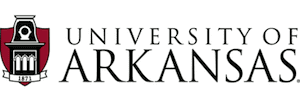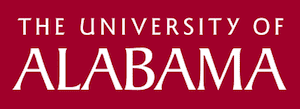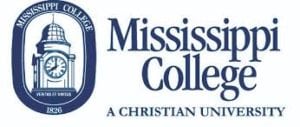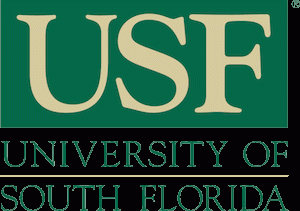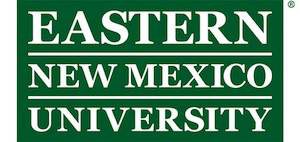Master of Arts in Special Education Online
 Facts don’t lie when it comes to top online masters degrees. At UTPB the Master of Arts in Special Education Online is accredited, fast, and inexpensive. There is no question of quality for any online masters degree when the program is accredited by CAEP, CEC, and SBEC. The 100-percent online degree can be completed in 12 months, which is only the case with a few schools on our list. In addition, the accessible program is designed for working people and has six start dates. The GRE requirement is waived for candidates with a GPA of over 3.0 and no teaching certification is required to enroll. Here are the knowledge and skills you’re in for with a UTPB education:
Facts don’t lie when it comes to top online masters degrees. At UTPB the Master of Arts in Special Education Online is accredited, fast, and inexpensive. There is no question of quality for any online masters degree when the program is accredited by CAEP, CEC, and SBEC. The 100-percent online degree can be completed in 12 months, which is only the case with a few schools on our list. In addition, the accessible program is designed for working people and has six start dates. The GRE requirement is waived for candidates with a GPA of over 3.0 and no teaching certification is required to enroll. Here are the knowledge and skills you’re in for with a UTPB education:
- Cultural Diversity in Education and the Social Sciences
- Educational Psychology
- Behavior Management and Social Skills
- Transition Programming for Exceptional Learners
- Foundation and Legal Aspects of Special Education
- Parent Involvement in Autism
- Autism across the Lifespan
If you are interested in an online track in Autism you’ve found it as well. Like the general track, the curriculum is 36-credits, fully online, fully accessible, and fully affordable.
About The University of Texas of the Permian Basin
The University of Texas of the Permian Basin is a mid-sized public university that educates over 7,000 students. UTPB provides students an excellent learning environment with a small-campus feeling but the resources fo the UT System.
- Location: Odessa, TX
- Percentage of Graduate Students: 18.6%
- Faculty to Student Ratio: 20:1
- Accreditation: Southern Association of Colleges and Schools, Commission on Colleges as well as several other accrediting bodies.
Why consider an Online Masters in Special Education?
 An online masters in special education is often more accessible, affordable, and flexible than a traditional on-campus degree. Let’s face it, with today’s fast-paced society we need options to meet our needs on our time. What this really boils down to is a strong demand for high-quality, inexpensive online programs; and what you’ll find in this great country are schools meeting that demand. Online learning continues to grow and looks to well into the future. According to the Sloan Consortium, 31 percent of all college students today are enrolled in an online course.
An online masters in special education is often more accessible, affordable, and flexible than a traditional on-campus degree. Let’s face it, with today’s fast-paced society we need options to meet our needs on our time. What this really boils down to is a strong demand for high-quality, inexpensive online programs; and what you’ll find in this great country are schools meeting that demand. Online learning continues to grow and looks to well into the future. According to the Sloan Consortium, 31 percent of all college students today are enrolled in an online course.
The U.S. Department of Education’s study indicated that “students who took all or part of their class online performed better, on average than those taking the same course through traditional face-to-face instruction.” As our economy digitizes and globalizes, educational institutions are adapting and evolving. If you have your teaching license and are looking to meet professional development requirements, gain a deeper insight, or just improve your craft and online masters will get you there. If you do not have your license and want to engage in a challenging field that can bring great satisfaction there are online masters in special education for you.
What does an Online Masters in Special Education program look like?
 Online learning varies a lot from school to school and program to program. There are hundreds of possibilities in terms of specializations, cost, quality, requirements, admission standards, etc. There are, however, also common aspects and elements. In general online masters in Special Education can be an M.A., M.S., or M.Ed. These differ largely in their overall focus. An M.A. and M.S. are considered academic degrees and include a research component. An M.Ed. is a practitioner degree that is for current teachers (licensed generally). Special Education is a dynamic and complex field to work. Almost all the core requirements of online masters in the subject include classes such as:
Online learning varies a lot from school to school and program to program. There are hundreds of possibilities in terms of specializations, cost, quality, requirements, admission standards, etc. There are, however, also common aspects and elements. In general online masters in Special Education can be an M.A., M.S., or M.Ed. These differ largely in their overall focus. An M.A. and M.S. are considered academic degrees and include a research component. An M.Ed. is a practitioner degree that is for current teachers (licensed generally). Special Education is a dynamic and complex field to work. Almost all the core requirements of online masters in the subject include classes such as:
- Introduction to Special Education
- Law and Legal Issues
- Psychoeducational Assessment
- Behavioral Management and Intervention
- Instructional Models and Design
- Supervision and Culturally Responsive Teaching
Core credits can proportionally vary from 12 to 24 credits. In general, the programs on our list are around 36 credits. If you’re looking for specializations there are many options:
 Autism Spectrum Disorder
Autism Spectrum Disorder - Early Childhood Special Education
- General Special Education
- Emotional Behavioral Disorders
- Intellectual Disabilities
- Learning Disabilities
- Special Education Strategist
- Visual Impairment
Lastly, be aware that licensure and certification requirements are not always part of the program. In addition, it is always our advice to check with your state for specific requirements and standards.
What is the job outlook for special education?
The job outlook looks good for special education, particularly for specialized training in areas of need. The Bureau of Labor Statistics reports job growth of 6% over the next ten years for special education in general. This can be a bit deceiving, however. Since children are being screened and identified earlier and earlier there is an increasing need for special education preschool teachers where job growth is expected to reach 16% by 2022. Trends also indicate that the need for teachers of culturally and linguistically diverse learners is also rising. The fact is, in order to fill the coming need you need specialized training to work with students who have multiple disabilities, severe disabilities, or autism spectrum disorders for example. Autism is another area of growing demand.
In 2018 the CDC determined that approximately 1 in 59 children is diagnosed with an autism spectrum disorder (ASD). If we look to other sources than the BLS we can see there may even be a shortage. Lynn Boyer, the director of the National Clearinghouse for Professions in Special Education at the Council for Exceptional Children (CEC), says we do have a shortage right now. Thankfully, there are incredible online masters degrees in special education with concentrations in all these areas. Please note, programs vary in terms of meeting licensure requirements for different states.
What do I need to know about accreditation and licensing?
 Accreditation is important when considering a school’s program. All the schools listed on our top 30 are regionally accredited by organizations such as the Southern Association of Colleges and Schools, Commission on Colleges, Higher Learning Commission, and the New England Association of Schools and Colleges, to name a few These accrediting bodies do provide an indication that the schools are abiding by standards determined by an outside agency. More importantly, however, for a degree in Special Education, you need to look for the Council for the Accreditation of Educator Preparation (CAEP), the Council for Exceptional Children (CEC), or the National Commission for the Accreditation of Special Education Services (NCASES), to name the most common.
Accreditation is important when considering a school’s program. All the schools listed on our top 30 are regionally accredited by organizations such as the Southern Association of Colleges and Schools, Commission on Colleges, Higher Learning Commission, and the New England Association of Schools and Colleges, to name a few These accrediting bodies do provide an indication that the schools are abiding by standards determined by an outside agency. More importantly, however, for a degree in Special Education, you need to look for the Council for the Accreditation of Educator Preparation (CAEP), the Council for Exceptional Children (CEC), or the National Commission for the Accreditation of Special Education Services (NCASES), to name the most common.
These organizations are specifically focused on providing standards, guidance, and accountability to institutions of higher learning who train people in the field of special education. Many on our list are accredited by national organizations such a CAEP or CEC. This can provide you an edge when looking for jobs as well. Some employers look for programs accredited by these national organizations to ensure quality training. As for licensing, if you enroll in an online school out of your state you need to check the National Association of State Directors of Teacher Education and Certification (NASDTEC) website.
Are there any scholarships available for earning my online masters in special education?
 The cost of education today is very high, but there are still some affordable options. One way to address the financial component in our consideration is scholarships. There are a variety of categories of scholarships: national scholarships, state scholarships, college scholarships, and charitable foundation’s scholarships. The U.S. Department of Education offers the TEACH Grant. This grant is for those who plan to teach in a high-need field in a low-income area. You can receive up to $4,000 a year. The Bishop Charles P. Greco Graduate Fellowship is through the Knights of Columbus. You can get up to $2000 for two-year masters programs in special education. The American Sign Language Teachers Association (ASLTA) offers a national scholarship of $1,250 to college students majoring or minoring in ASL, deaf studies, deaf education, special education, or interpreter preparation.
The cost of education today is very high, but there are still some affordable options. One way to address the financial component in our consideration is scholarships. There are a variety of categories of scholarships: national scholarships, state scholarships, college scholarships, and charitable foundation’s scholarships. The U.S. Department of Education offers the TEACH Grant. This grant is for those who plan to teach in a high-need field in a low-income area. You can receive up to $4,000 a year. The Bishop Charles P. Greco Graduate Fellowship is through the Knights of Columbus. You can get up to $2000 for two-year masters programs in special education. The American Sign Language Teachers Association (ASLTA) offers a national scholarship of $1,250 to college students majoring or minoring in ASL, deaf studies, deaf education, special education, or interpreter preparation.
Another national scholarship is the Janice Jones Critical Need Scholarship. This awards $800 to those enrolled in any category of special education. The Shon Shadrick Memorial Scholarship is a $5000 scholarship awarded to a student pursuing a degree in Special Education. There are too many to list of state scholarships; it would be best to do a simple search in your state to find out potential scholarships for you. If you are part of a faith community, there may be options as well.
Need More? OnlineCollegePlan has it!
If you aren’t ready to commit to an online masters degree in special education or are interested in other potential degrees, check out the links below.
 OnlineCollegePlan is proud to present you with the best online masters degree programs in Special Education. Below you will find useful information about the individual degree, the online universities, and helpful information about an online Masters in Special Education.
OnlineCollegePlan is proud to present you with the best online masters degree programs in Special Education. Below you will find useful information about the individual degree, the online universities, and helpful information about an online Masters in Special Education. Special Education programs take you into all the relevant areas of the field. You learn educational behavior and development, theories and methodologies of education, data to inform and guide classroom instruction, cutting-edge assistive technologies, current trends in the education field, and methods of teaching with classroom management. You also learn the ins and outs of legal issues related to the field of SPED as well as best practices to work with families and the community. The world of SPED is truly bigger on the inside than the outside. There are dozens of specializations within the broader heading of Special Education. Some specializations you’ll find out about on our list are:
Special Education programs take you into all the relevant areas of the field. You learn educational behavior and development, theories and methodologies of education, data to inform and guide classroom instruction, cutting-edge assistive technologies, current trends in the education field, and methods of teaching with classroom management. You also learn the ins and outs of legal issues related to the field of SPED as well as best practices to work with families and the community. The world of SPED is truly bigger on the inside than the outside. There are dozens of specializations within the broader heading of Special Education. Some specializations you’ll find out about on our list are:  Delivery is flexible for those seeking to get in, or move to a different job within, Special Education. You can choose traditional brick-and-mortar learning, a combination of on-campus and online learning, or a fully online program. We focus on online programs on this list because they are often more flexible in terms of start-times, class assignments, and courses (many are customizable). Online masters degrees are also generally more inexpensive. Affordability is often the #1 factor in determining where to earn your degree. The price per credit range is $253 to $1745. All the degrees on our list are accredited with many having multiple accreditations both nationally and regionally. Look for those that are CAEP-accredited (Council for the Accreditation of Educator Preparation). So, with all the bases covered why not go it and jump into the dynamic and challenging world of special education?
Delivery is flexible for those seeking to get in, or move to a different job within, Special Education. You can choose traditional brick-and-mortar learning, a combination of on-campus and online learning, or a fully online program. We focus on online programs on this list because they are often more flexible in terms of start-times, class assignments, and courses (many are customizable). Online masters degrees are also generally more inexpensive. Affordability is often the #1 factor in determining where to earn your degree. The price per credit range is $253 to $1745. All the degrees on our list are accredited with many having multiple accreditations both nationally and regionally. Look for those that are CAEP-accredited (Council for the Accreditation of Educator Preparation). So, with all the bases covered why not go it and jump into the dynamic and challenging world of special education?














